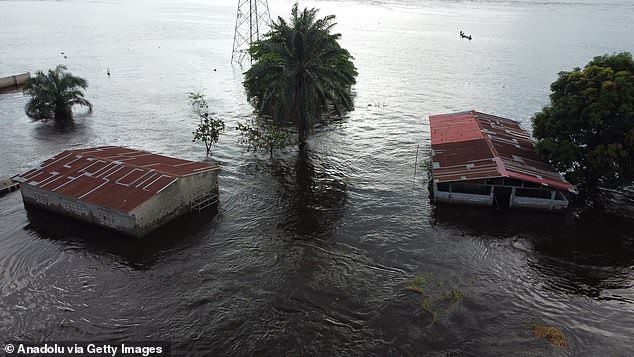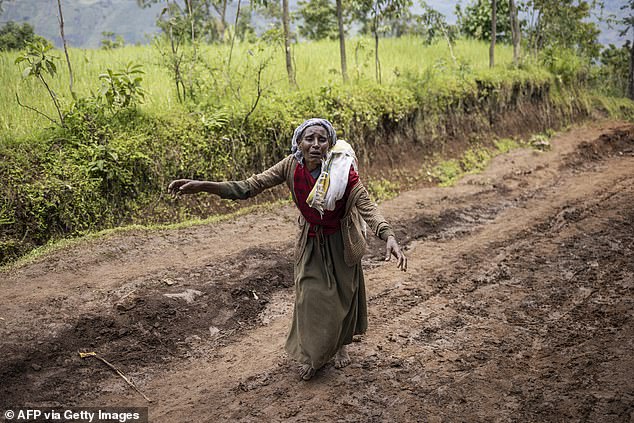Climate change could cause a rise in domestic violence: sexual assaults and physical abuse against women increase after storms, floods and landslides, a study warns
Climate change could cause a rise in domestic violence against women, according to a worrying new study.
Researchers from University College London (UCL) analyzed how extreme weather events in 156 countries were linked to rates of intimate partner violence (IPV).
They found that in the two years following a storm, landslide or flood, there was an increase in physical abuse and sexual violence.
This was especially the case in countries with lower GDP.
“This is happening more often and increasingly in countries where patriarchal gender norms apply and where the use of violence against women is widely accepted as normal behavior,” said Professor Jenevieve Mannell, lead author of the study.
Climate change could cause a rise in domestic violence against women, a worrying new study has found (stock image)

Their analysis found that there is a ‘significant link’ between intimate partner violence and storms, landslides and floods. Pictured: Floods in Kinshasa, Democratic Republic of Congo, in January 2024
In the study, the researchers wanted to investigate whether or not ‘climate shocks’ – such as storms, landslides, floods, earthquakes and wildfires – are related to the rate of IPV.
“Existing evidence shows that when a woman experiences a climate-related event, she is more likely to experience violence in some countries and some types of violence, but not in others,” Professor Mannell said.
‘We wanted to investigate what was happening at the national level to help inform international policy on climate change.’
IPV was defined as any physical and/or sexual violence in the past year.
The team collected data on intimate partner violence from 363 surveys conducted in 156 countries between 1993 and 2019, focusing on women who were currently in a partner.
They also collected data on climate shocks from 1920 to 2022 in 190 countries.
Finally, they analyzed the relationship between climate blocs and IPV, while also taking into account the economic status of each country.
Their analysis showed a ‘significant association’ between IPV and storms, landslides and floods.
However, earthquakes and forest fires showed no clear association with IPV.
Meanwhile, countries with higher GDP were found to have lower IPV rates.
In their study, published in PLOS Climate, the team writes: ‘The highest IPV values were measured for the Democratic Republic of Congo, followed by Ethiopia and Papua New Guinea.’

Countries with higher GDP were found to have lower IPV rates. Pictured: A woman returning from the site of a landslide in Kencho Shacha Gozdi, Ethiopia
Although the reason for the findings remains unclear, researchers have several theories.
Professor Mannell explained: ‘A small body of evidence shows that heat and humidity increase aggressive behaviour, including violence.
“Climate-related disasters increase stress and food insecurity in families in ways that can lead to an increase in violence.
‘They also reduce the social services that are often available to address intimate partner violence, such as police and civil society who focus more on the disaster.
“At the same time, governments may set up disaster relief shelters, which are often overcrowded and unsafe, without considering the risks of sexual violence.”
Based on the findings, the researchers are calling for “urgent climate mitigation and adaptation efforts” around the world.
In a statement, the team said: ‘This could include mentioning ‘violence against women’ in Nationally Determined Contributions (countries’ climate change commitments) and allocating financial resources to address this or developing gender action plans for climate change.’
The team also recommends that violence against women should be taken into account in countries’ disaster planning processes.
